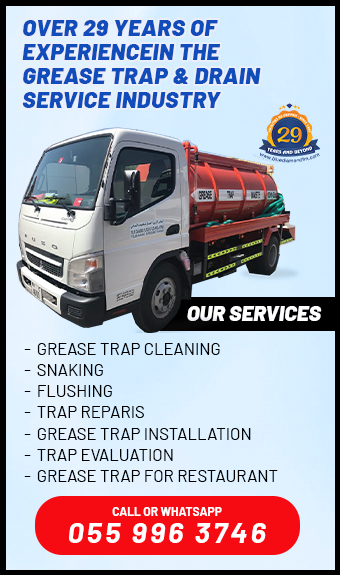Grease Trap Compliance in the UAE: How to Know If Your Restaurant Meets the Legal Requirements
Grease Trap Compliance is no longer optional for food businesses in the UAE—it’s a legal and environmental necessity. With increasing scrutiny from municipal authorities and growing public expectations around hygiene and sustainability, restaurant owners and facility managers must understand how to stay compliant to avoid costly penalties and reputational damage.
This guide provides a clear breakdown of what Grease Trap Compliance means, the latest UAE grease trap regulations, and how to keep your commercial kitchen running clean and legal.
What Is Grease Trap Compliance?
Grease Trap Compliance refers to the adherence to local regulations governing the installation, maintenance, and documentation of grease trap systems in commercial kitchens. These traps are essential for separating fats, oils, and grease (FOG) from wastewater before it enters the sewage system.
Failure to comply with these regulations can result in environmental hazards, sewer blockages, and serious penalties from local authorities such as the Dubai Municipality or Abu Dhabi Waste Management Center (Tadweer).
Why Compliance Matters for UAE Restaurants
Whether you operate a restaurant in Dubai Marina, a catering kitchen in Mussafah, or a food truck in Sharjah, restaurant FOG compliance is crucial for:
Avoiding heavy municipal fines
Preventing business disruption due to plumbing issues
Passing health and safety inspections
Supporting environmental sustainability initiatives
Maintaining a positive brand reputation
Real-world example: In early 2024, a popular restaurant in Downtown Dubai was fined AED 25,000 and temporarily shut down due to lack of proper grease trap maintenance and failure to keep records of service
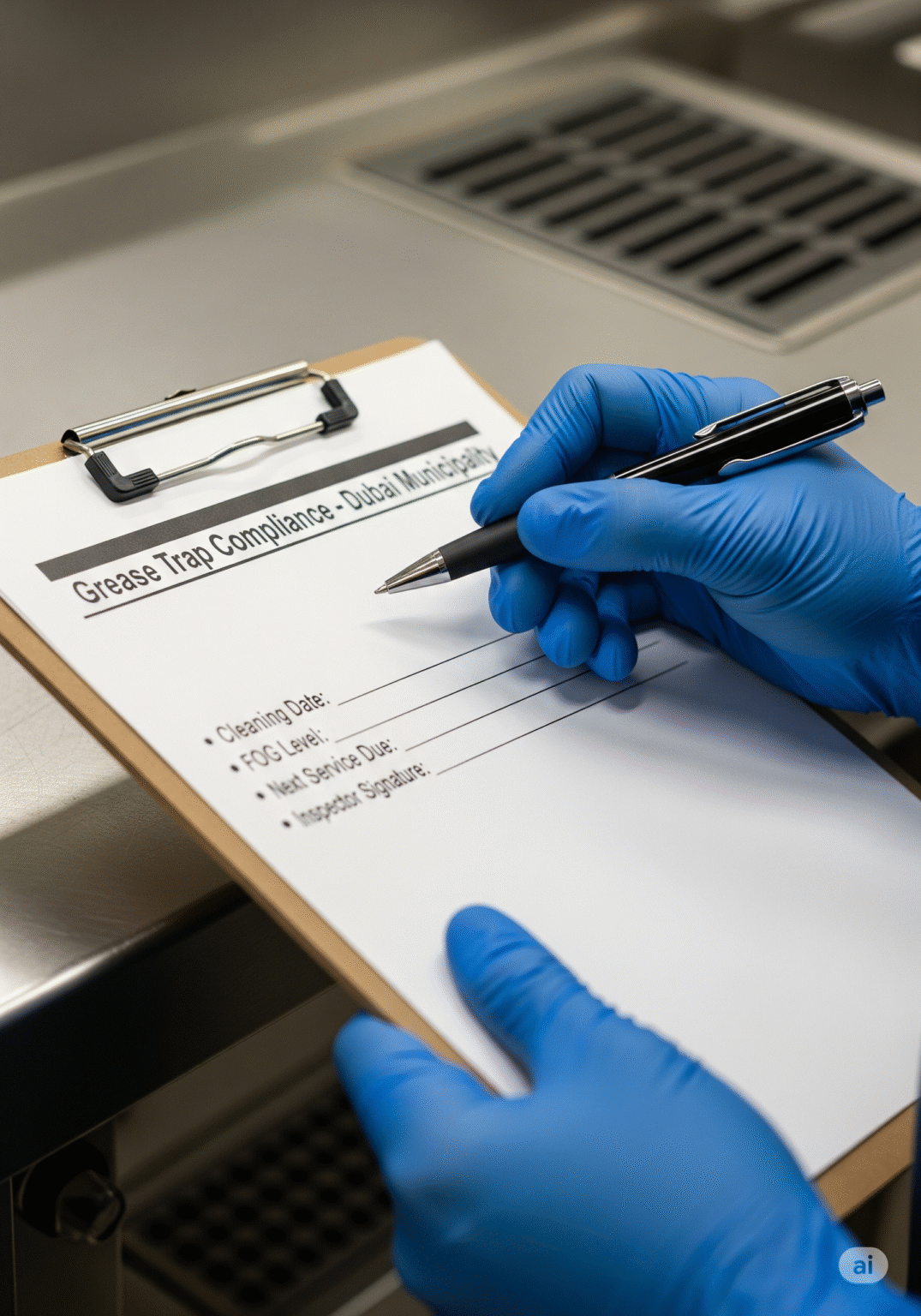
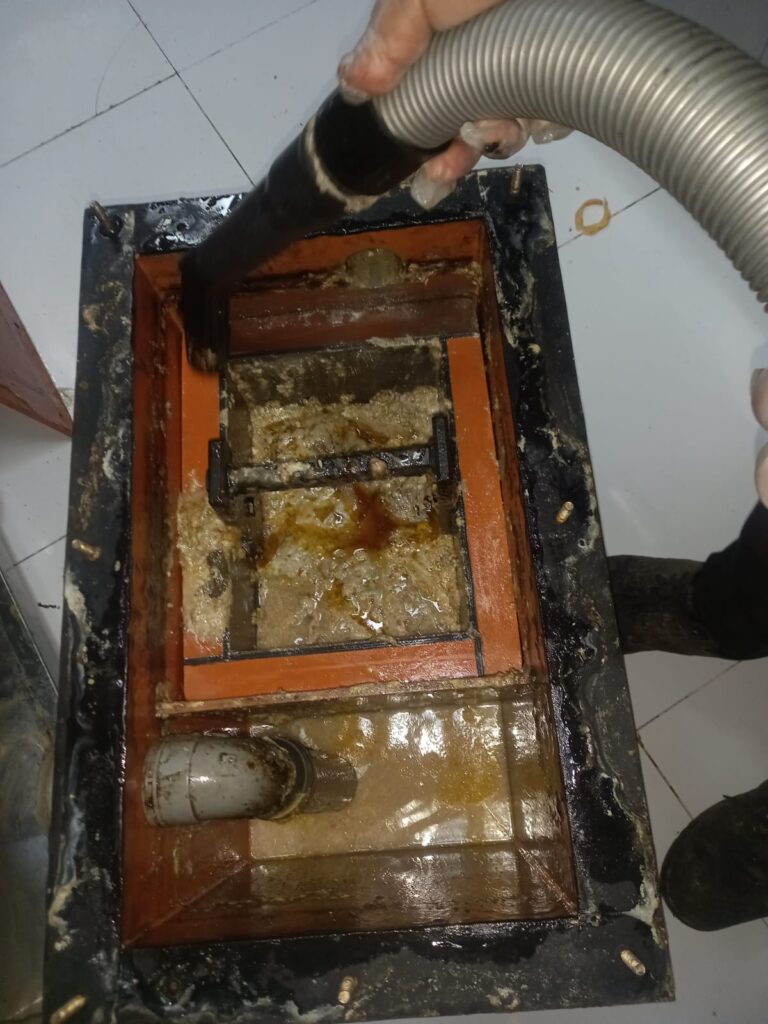
UAE Grease Trap Regulations: What the Law Requires
The UAE has robust environmental laws regulating FOG waste. Here’s what you need to know:
Dubai Municipality Grease Trap Guidelines:
Mandatory Installation: Grease traps must be installed in all commercial food establishments.
Routine Cleaning: Cleaning must be done every 1–3 months depending on usage.
Licensed Providers: Only Dubai Municipality-approved and ISO-certified providers may perform grease trap cleaning and waste disposal.
Recordkeeping: Businesses must maintain logs of cleaning dates, service reports, and disposal certificates for inspection.
Abu Dhabi and Other Emirates:
Tadweer (Abu Dhabi) enforces similar regulations, requiring strict FOG waste tracking and disposal through approved haulers.
In Sharjah and Ajman, municipality inspectors frequently visit high-traffic restaurants and central kitchens to check compliance.
How to Stay Compliant: Step-by-Step Checklist
To ensure your restaurant meets Grease Trap Compliance standards in the UAE, follow this actionable checklist:
Installation & Equipment
Use properly sized grease traps as per kitchen capacity
Install units in accessible areas for easy inspection and cleaning
Ensure the trap is approved by Dubai Municipality or local authority
Cleaning & Maintenance
Schedule routine grease trap cleaning every 1–3 months
Use only ISO-certified and municipality-approved service providers
Dispose of FOG waste through licensed collectors
Documentation & Reporting
Keep physical or digital logs of each cleaning service
Maintain certificates of FOG waste disposal
Present records during municipal inspections when required
Staff Awareness
Train kitchen staff not to pour oil, grease, or food particles down the drain
Conduct periodic refresher training on FOG handling procedures
Benefits of Working with Certified Service Providers
Hiring ISO-certified, municipality-approved grease trap cleaning companies ensures:
Full Grease Trap Compliance
Accurate reporting and documentation
Avoidance of fines and closures
Safe, eco-friendly disposal of FOG waste
Priority support during emergency clogs or inspection alerts
Consequences of Non-Compliance
Failing to meet UAE grease trap regulations can lead to:
Fines ranging from AED 5,000 to AED 50,000
Temporary business closure
Negative listing on government compliance databases
Increased pest infestation and drain blockages
Sewer system damage that affects neighboring businesses
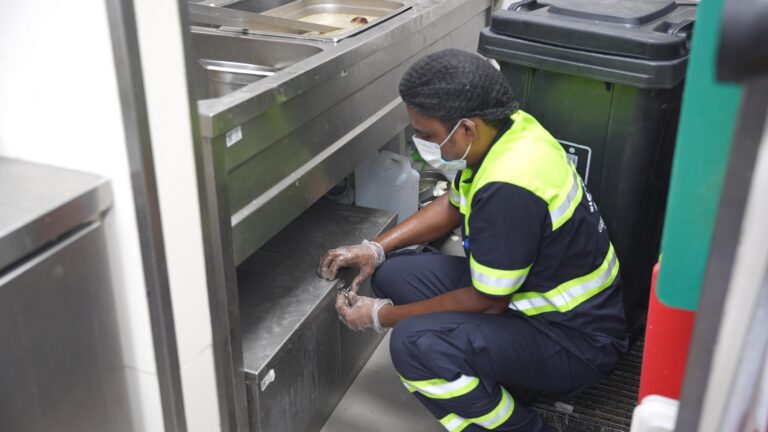
Schedule Regular Grease Trap Inspections in the UAE
Regular grease trap inspection UAE services help identify early signs of blockage, overflow, or structural damage. Proactive inspections are encouraged at least once every quarter to maintain compliance and avoid emergencies.
Get a Custom Quote for Your Restaurant’s Grease Trap Maintenance Plan
Most Frequently Asked Question
Cleaning should be done every 1 to 3 months based on kitchen volume and Dubai Municipality guidelines.
Yes. Municipalities require service records and disposal receipts to verify compliance.
No. Only licensed, municipality-approved service providers are allowed to clean and dispose of grease trap waste.
Inspectors check for proper installation, maintenance logs, and FOG waste disposal practices.
It means your kitchen is managing fats, oils, and grease according to legal and environmental standards.
Schedule a professional grease trap audit to evaluate your setup, cleaning routine, and documentation.
Our Services
Our step-by-step guide simplifies the cleaning process, ensuring a hassle-free experience while keeping your traps clean.
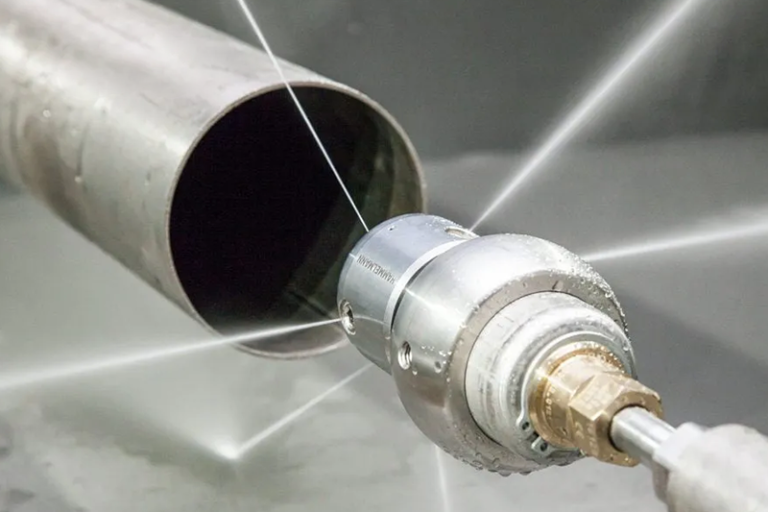
Drain Line Jetting
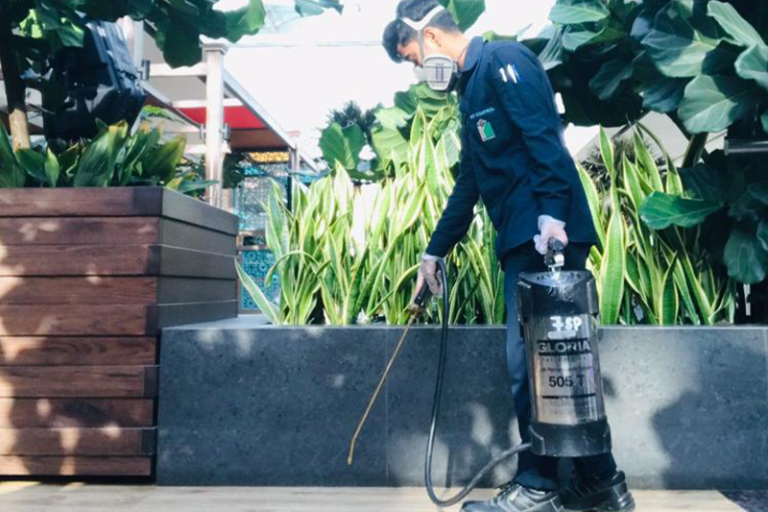
Pest Control Service
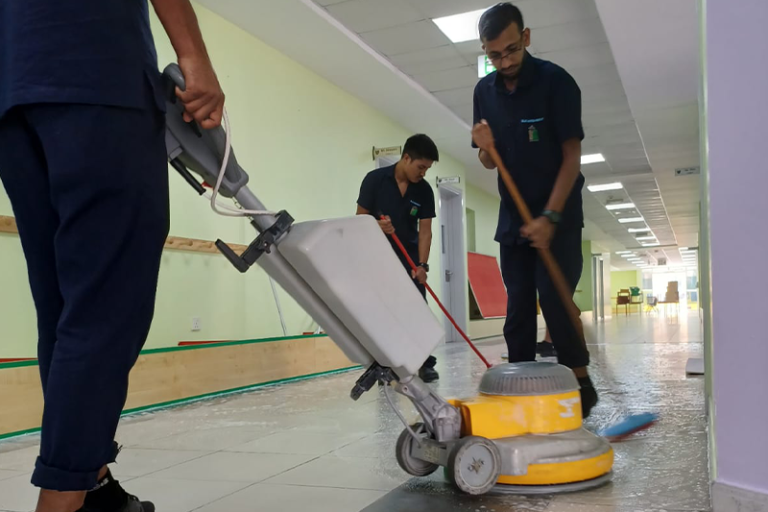
Deep Cleaning
business
Our Working Process
Let’s start the journey towards success and enhance revenue for your business. Take your company to the next level.
Book An Appointment Today
Blue Diamond would like to hear from you. if you have business inquiries. Get in touch with us.





